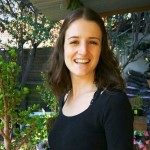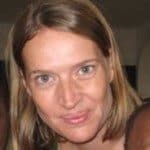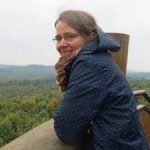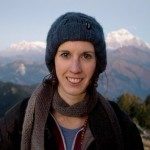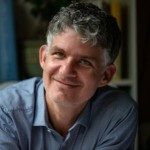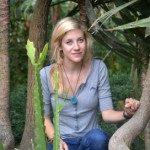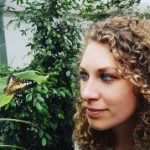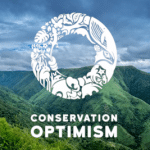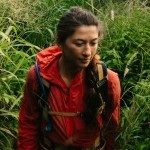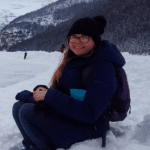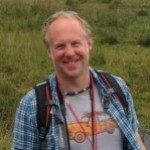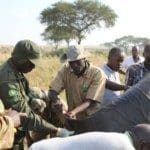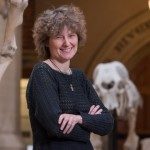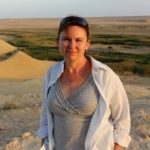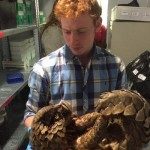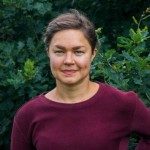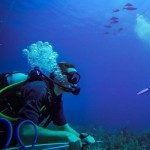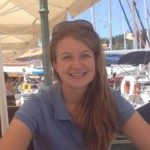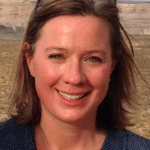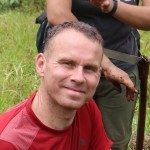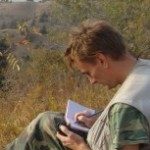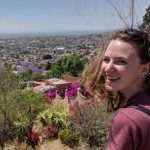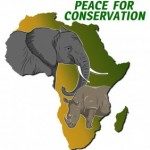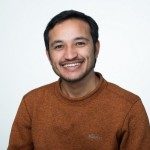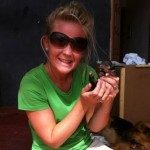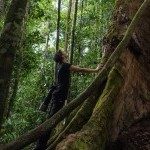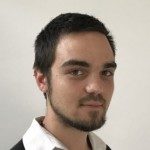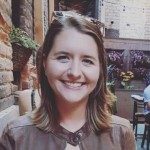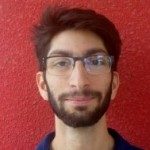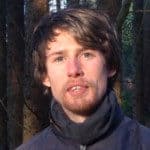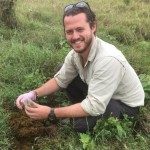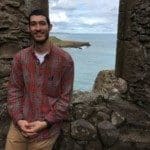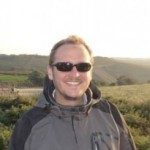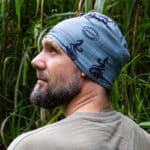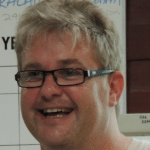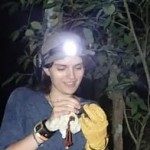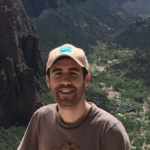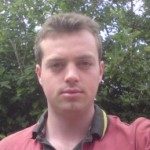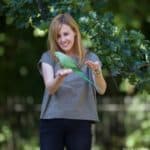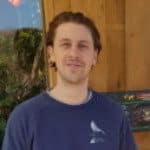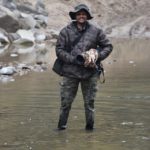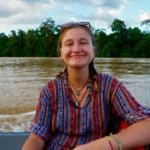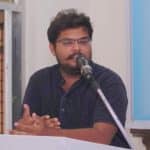My name is Aini Hasanah and I am currently a PhD candidate at Universiti Sains Malaysia, doing my studies on orang utan conservation in Malaysia. At the same time, my colleagues and I co-found an NGO, namely Malaysian Primatological Society (MPS). MPS is the first registered and established NGO in Malaysia to focus on conservation efforts and research of Malaysian primates. We have a number of research projects such as Primate Watch Malaysia, Langur Project Penang, Night Spotting Project, Macaca Nemestrina Project and Gibbons of Peninsular Malaysia. We also actively participate in public outreach program such as road tours, public talks, congresses and seminar for schools, colleges and university students. as well as at public events.
With the help of my supervisors and colleagues, I facilitate to train students in the field, and in classrooms for orang utan projects of Primate Watch Malaysia. I really hope to contribute toward primate and forest conservation in Malaysia. Not only that our forests provide many functions for humans’ quality of life, but they are also iconic, heritage and endemic treasures. My hope is that primate and forest conservation efforts could be effectively, efficiently and collaboratively done so that more productive outcomes could be achieved.
With the help of my supervisors and colleagues, I facilitate to train students in the field, and in classrooms for orang utan projects of Primate Watch Malaysia. I really hope to contribute toward primate and forest conservation in Malaysia. Not only that our forests provide many functions for humans’ quality of life, but they are also iconic, heritage and endemic treasures. My hope is that primate and forest conservation efforts could be effectively, efficiently and collaboratively done so that more productive outcomes could be achieved.
I have worked over 15 years as an ecologist on biodiversity conservation and protected area management in the tropics, mainly in island settings like Socotra, Madagascar and Principe working for different NGOs. I am currently freelancing and keen to expand my skill set to change the conversation on conservation accessible to a wider audience through storytelling and powerful visual material.
Anna is an ethnobiologist-ecologist, assistant research fellow of the Traditional Ecological Knowledge Research Group at the Centre for Ecological Research, the Hungarian Academy of Sciences, PhD candidate at the University Pécs, and leader of the Hungarian Association for Land and People NGO. She was a board member of the International Society of Ethnobiology between 2012 and 2014 as a student representative. She researches landscape history, ethnobiology, vegetation and innovations of the silvopastoral systems in the Carpathian Basin. She is also interested in weaving traditional knowledge into education and the role of gastronomy in nature conservation.
She was one of the speaker at the A New Generation of Environmental Leaders Embrace Whole Earth Conservation’, hosted by the Global Environments Network (GEN) in London Summit, 2017. She presented on how the growing gastronomy and ‘food-ism’ culture in Hungary is contributing to the maintenance and conservation of wood pastures (one of the most threatened biocultural hotspots of Europe).
She was one of the speaker at the A New Generation of Environmental Leaders Embrace Whole Earth Conservation’, hosted by the Global Environments Network (GEN) in London Summit, 2017. She presented on how the growing gastronomy and ‘food-ism’ culture in Hungary is contributing to the maintenance and conservation of wood pastures (one of the most threatened biocultural hotspots of Europe).
Carina Hirsch is the Trust's Advocacy and Projects Manager. She advocates on the importance of family planning to improve women's and girls' health, well-being and empowerment while also contributing to environmental goals. Carina has also overseen integrated projects in South Africa.
I am an innovative educator at the University of Oxford and I use serious games to teach and engage the public.
I'm a lecturer in conservation at the Durrell Institute of Conservation and Ecology (DICE, University of Kent), and aspiring writer hoping to communicate conservation issues to broader audiences. I'm mainly focused on Madagascar and work on protected areas, community-based approaches, small-scale fisheries, and the researcher-practitioner divide
I work as EDGE Fellowship Coordinator for the EDGE of Existence programme at the Zoological Society of London, which uses a unique scientific framework to identify the most Evolutionarily Distinct and Globally Endangered (EDGE) species and prioritises them for conservation action.
I work on increasing the use of the Conservation Evidence project by conservation practitioners. This involves communication about the benefits of evidence based conservation, promotion of the Conservation Evidence database, and the provision of academic support for practitioners who want to test conservation interventions that can add to the Conservation Evidence project. I work closely with NGOs who want to increase their use of evidence in decision making, and improve their impact evaluation and publication of conservation interventions.
Most recently I was a contributing author on the PRISM toolkit for evaluating the outcomes and impacts of small/medium-sized conservation projects. My 2017 paper 'Evidence complacency hampers conservation' was used by Lord John Krebs to ask the UK government to ensure the the government's 25 year environment plan would be evidence based.
Prior to this I worked for the RSPB, looking at the evidence base for management options for seabirds in marine protected areas.
I did my PhD at the University of Leeds under the supervision of Professor John Altringham. I worked in collaboration with the Nature Conservation Foundation(www.ncf-india.org/), and focused on changes in bat species composition and functional diversity between different plantation types, forest fragments and riparian corridors in the Western Ghats of India.
I have done extensive public outreach in the UK and India, mostly focused around bats, including talks in schools, newspaper series, poster exhibitions and science outreach events.
Most recently I was a contributing author on the PRISM toolkit for evaluating the outcomes and impacts of small/medium-sized conservation projects. My 2017 paper 'Evidence complacency hampers conservation' was used by Lord John Krebs to ask the UK government to ensure the the government's 25 year environment plan would be evidence based.
Prior to this I worked for the RSPB, looking at the evidence base for management options for seabirds in marine protected areas.
I did my PhD at the University of Leeds under the supervision of Professor John Altringham. I worked in collaboration with the Nature Conservation Foundation(www.ncf-india.org/), and focused on changes in bat species composition and functional diversity between different plantation types, forest fragments and riparian corridors in the Western Ghats of India.
I have done extensive public outreach in the UK and India, mostly focused around bats, including talks in schools, newspaper series, poster exhibitions and science outreach events.
We are a global community dedicated to sharing stories and resources to empower people from all backgrounds to make a positive impact for wildlife and nature.
In 2013, with an invitation from The WILD Foundation to address the lack of support and visibility that was available to younger generations in the environmental sector, Crista Co-Founded CoalitionWILD, a now 10,000+ member global initiative in over 50 countries connecting and equipping the world's young leaders to tackle our planet's greatest conservation challenges. She continues to lobby for a stronger integration of youth voices and empowerment in decision making, and has achieved this through recently co-publishing an intergenerational leadership toolkit for conservation and has collaborated with the United Nations Environment and the United States Department of Interior to develop new programs supporting these efforts.
Crista is the North American Focal Point for the International Union for the Conservation of Nature (IUCN) World Commission on Protected Areas (WCPA) Young Professionals, an active member of the Global Youth Biodiversity Network, a Womentum, Leadership Jackson Hole, and Earth Charter Institute Alumni, and has had her writing featured in international publications including the International Journal of Wilderness. Most recently, Crista was named one of Wyoming’s Top 40 Under 40 and was named the 2017 Rising Star by the Jackson Hole Chamber of Commerce.
Crista is the North American Focal Point for the International Union for the Conservation of Nature (IUCN) World Commission on Protected Areas (WCPA) Young Professionals, an active member of the Global Youth Biodiversity Network, a Womentum, Leadership Jackson Hole, and Earth Charter Institute Alumni, and has had her writing featured in international publications including the International Journal of Wilderness. Most recently, Crista was named one of Wyoming’s Top 40 Under 40 and was named the 2017 Rising Star by the Jackson Hole Chamber of Commerce.
I recently graduated from the University of Liverpool where I studied Conservation and Resource Management (MRes). I currently work full time in conservation communications, and run my own blog Nature's Good News where I aim to promote conservation optimism and make research accessible to all.
Diogo Veríssimo is a conservation scientist with a passion for great stories and happy endings. His work has taken him beyond his native Portugal to Latin America, South Asia and West Africa where he has applied his knowledge of marketing and conservation to help tackle challenges such as human-wildlife coexistence, wildlife trade or natural resource management.
Dr. James Watuwa is a wildlife veterinarian and WCN 2019 scholarship recipient. He is a senior veterinarian at Uganda Wildlife and Conservation Education Centre (Entebbe Zoo) since 2019.
His role is to plan and coordinate animal health care programs for UWEC, conduct effective quarantine procedures for zoo animals to ensure optimal health, conduct preventive health care programs for all animals at UWEC and provide veterinary extension services for communities, among others.
He has worked with Conservation Through Public Health (CTPH) where he undertook lead veterinary functions within CTPH’s One Health and conservation model by contributing to the three programs: Wildlife health monitoring and conservation, community health and alternative livelihoods.
His role is to plan and coordinate animal health care programs for UWEC, conduct effective quarantine procedures for zoo animals to ensure optimal health, conduct preventive health care programs for all animals at UWEC and provide veterinary extension services for communities, among others.
He has worked with Conservation Through Public Health (CTPH) where he undertook lead veterinary functions within CTPH’s One Health and conservation model by contributing to the three programs: Wildlife health monitoring and conservation, community health and alternative livelihoods.
E.J. Milner-Gulland founded Conservation Optimism in 2016. She is the Tasso-Leventis Professor of Biodiversity in the Zoology department at the University of Oxford and leads the Interdisciplinary Centre for Conservation Science.
Head of Conservation at Citizen Zoo, Creative Director at A Focus On Nature. Aspiring conservationist, who has a great interest in supporting young conservationists, urban ecology and pangolins. While empowering and inspiring people of all ages and backgrounds to engage with the environment and conservation
Hannah Ryan-Leah is a Programme Coordinator at Action for Conservation. She studied Ecological sciences and Conservation management at the University of Edinburgh.
She is passionate about working with young people and connecting them to nature, she has a special interest in bat ecology and can often be found leading bat walks on Action for Conservation’s residential camps.
She is currently studying an MSc in Science Communication at Imperial College London alongside her role at Action for Conservation.
She is passionate about working with young people and connecting them to nature, she has a special interest in bat ecology and can often be found leading bat walks on Action for Conservation’s residential camps.
She is currently studying an MSc in Science Communication at Imperial College London alongside her role at Action for Conservation.
Conservationist & ocean optimist, working on marine programmes in Asia-Pacific region with Fauna & Flora International. Work experience and interests include the use of training as a conservation tool, coral reef ecology, fisheries management, and the role of zoos in conservation.
I co-founded Synchronicity Earth in 2009 to offer a coordinated response to the global biodiversity crisis. At once a research hub and a platform engagement - we identify conservation priorities, find people and organisations best placed to tackle them, design solutions for lasting change and share our findings across a wide external network.
I am also an active Patron of Nature for the International Union for the Conservation of Nature (IUCN), helping to raise the visibility of global conservation needs worldwide, and an Honorary Conservation Fellow for the Zoological Society of London.
I am also an active Patron of Nature for the International Union for the Conservation of Nature (IUCN), helping to raise the visibility of global conservation needs worldwide, and an Honorary Conservation Fellow for the Zoological Society of London.
I am the Head of Communications at Synchronicity Earth, an environmental charity which aims to address overlooked and underfunded conservation challenges in places where biodiversity is threatened.
Lecturer in Conservation Science for DICE at the University of Kent, and co-founder and Director of Wild Business Ltd. Also, Research Associate at University of Oxford.
Previously, Research Fellow at University of Copenhagen, Ph.D. at Imperial College London. Before that, a working background in environmental consultancy and a B.Sc. in Physics.
Previously, Research Fellow at University of Copenhagen, Ph.D. at Imperial College London. Before that, a working background in environmental consultancy and a B.Sc. in Physics.
I am an MSc student in Biodiversity, Conservation and Management at the University of Oxford with a background and focus in rewilding and inter-species grazing interactions.
David Kabambo is the founder and Director of Peace for Conservation and holds a B. A. Degree in social work, postgraduate diploma in Wildlife Management, and is presently a Master’s Degree student working towards a degree in Natural Resource Management and Assessment. David is well experienced in results based management and facilitating planning, research, monitoring and evaluation of development and conservation programmes and projects.
Previously David worked at Plan International, Tanzania as a child rights advocate and AMREF Health Africa as coordinator of the Maternal Newborn and Child Health (MNCH) Project. He has developed and managed projects to promote conservation such as Soccer for Conservation, Dance for Conservation, and working with children in the Child to Child for Conservation training project. Under his direction, PFC is in the final stage of converting empty pig enclosures into pit latrines for schools by donating bags of cement to use for making bricks. David loves to socialize with people with physical disabilities, and two of his goals are to enable those with disabilities to visit National Parks to see wildlife and to organize a tricycle tour ride to build understanding and support for persons with physical disabilities
Previously David worked at Plan International, Tanzania as a child rights advocate and AMREF Health Africa as coordinator of the Maternal Newborn and Child Health (MNCH) Project. He has developed and managed projects to promote conservation such as Soccer for Conservation, Dance for Conservation, and working with children in the Child to Child for Conservation training project. Under his direction, PFC is in the final stage of converting empty pig enclosures into pit latrines for schools by donating bags of cement to use for making bricks. David loves to socialize with people with physical disabilities, and two of his goals are to enable those with disabilities to visit National Parks to see wildlife and to organize a tricycle tour ride to build understanding and support for persons with physical disabilities
I am a conservationist with diverse experience in research design, data collection, analysis, policy advocacy and program management including monitoring and evaluation. Currently, I am leading Greenhood Nepal, at the same time I work as an affiliated researcher with the Lancaster Environment Centre, Tropical Environmental Change and Policy Lab and Biodiversity Fellow at the University of Oxford.
I hold MSc. in Environmental Management from Pokhara University and wrote my dissertation on ‘Assessing illegal wildlife trade in Araniko-trail, Nepal’. Currently, I am leading a non-profit organization called Greenhood Nepal that works on thematic areas like Conservation Science and Species, Climate Change, Education and Awareness, Disaster Risk Management and other environmental issues in Nepal. I am actively involved with Nepal's conservation community, where I work to curb illegal wildlife trade and to scale-up pangolin conservation efforts.
I hold MSc. in Environmental Management from Pokhara University and wrote my dissertation on ‘Assessing illegal wildlife trade in Araniko-trail, Nepal’. Currently, I am leading a non-profit organization called Greenhood Nepal that works on thematic areas like Conservation Science and Species, Climate Change, Education and Awareness, Disaster Risk Management and other environmental issues in Nepal. I am actively involved with Nepal's conservation community, where I work to curb illegal wildlife trade and to scale-up pangolin conservation efforts.
My name is Lucy and I’m the UK Fundraising and Communications Officer for the Durrell Wildlife Conservation Trust. From a young age, I have always known that I wanted to work to protect our natural world. However, something that has always intrigued me is how we, the conservation community, can pass on our enthusiasm and scientific knowledge to the wider public, not only to change attitudes, but to change human behaviours and influence philanthropic giving.
One of my key roles at Durrell is communicating our science and the impact we have as an organisation – our Durrell Index. The world of conservation is far too often full of doom and gloom, so much so that we often forget to celebrate the positive stories that provide the proof that conservation can and does work. Whilst we must be honest and open about our failures, we also need to convey a message of hope to empower people to join us in believing that ours is a cause worth fighting for. Our conservation successes can do this - they are the stories that provide us with those ‘yes we can’ moments. I believe we need to better use these stories as catalysts to drive conservation forward.
I have an MSc in Conservation Science from Imperial College and have worked both in the field and NGO settings. In 2015 I was part of a two-woman expedition that cycled over 2,000km alongside the Mekong River to document positive conservation stories in the region. Through photography, film and blog posts, we aimed to create an optimistic platform that highlights the work of the many NGOs and committed individuals working in the region to generate awareness, support and funding for this hugely biodiverse region.
One of my key roles at Durrell is communicating our science and the impact we have as an organisation – our Durrell Index. The world of conservation is far too often full of doom and gloom, so much so that we often forget to celebrate the positive stories that provide the proof that conservation can and does work. Whilst we must be honest and open about our failures, we also need to convey a message of hope to empower people to join us in believing that ours is a cause worth fighting for. Our conservation successes can do this - they are the stories that provide us with those ‘yes we can’ moments. I believe we need to better use these stories as catalysts to drive conservation forward.
I have an MSc in Conservation Science from Imperial College and have worked both in the field and NGO settings. In 2015 I was part of a two-woman expedition that cycled over 2,000km alongside the Mekong River to document positive conservation stories in the region. Through photography, film and blog posts, we aimed to create an optimistic platform that highlights the work of the many NGOs and committed individuals working in the region to generate awareness, support and funding for this hugely biodiverse region.
Lucy has been working for Sumatran Orangutan Society since 2018. She has a Masters in Primate Conservation and has previously worked in conservation research, funding and communications for charities in Morocco and the UK.
BS Biology Missouri State University
MS Wildlife Biology Arkansas Tech University
Member of IUCN SULi Specialist Group
Director of Conservation for Conservation International-Africa Division
MS Wildlife Biology Arkansas Tech University
Member of IUCN SULi Specialist Group
Director of Conservation for Conservation International-Africa Division
I am the Co Chair for the IUCN Green Status of Species, which introduces a new method for assessing successful conservation. Historically, conservation success was measured in terms of the outcome we wish to avoid (extinction) rather than the outcome we wish to achieve: the recovery of populations carrying out their ecological roles throughout their indigenous range. The Green Status provides objective criteria to assess progress toward full species recovery. I am based at Oxford University at Washam College and as a Research Associate in the Interdisciplinary Centre for Conservation Science.
Growing up in the Himalayas of Kashmir, India, nature was always at my doorstep. Be it trekking with my father or walks across the ridgeline with my friends, the mountains always inspired me.
Subsequent stints in the metropolis of Mumbai and then Montreal only reinstated my passion to be amongst nature. It was in my teenage years, whilst exploring the remote mountain valleys of Kashmir, where I saw the importance of livestock to many local communities juxtaposed with their proximity to wildlife. This posed a dilemma: Is livestock presence ruining the paradise I call home? Thus, began an investigative journey that has taken me across the mountains and even the steppes of Central Asia for answers!
Subsequent stints in the metropolis of Mumbai and then Montreal only reinstated my passion to be amongst nature. It was in my teenage years, whilst exploring the remote mountain valleys of Kashmir, where I saw the importance of livestock to many local communities juxtaposed with their proximity to wildlife. This posed a dilemma: Is livestock presence ruining the paradise I call home? Thus, began an investigative journey that has taken me across the mountains and even the steppes of Central Asia for answers!
Hello.
My name is Nathan and I am from the UK. I am presently doing postgraduate research about forest and wildlife restoration in northeast China. This means soil samples, tree surveys and camera trapping for wild boar, roe deer, Amur tigers and Amur leopards, to see how these things all interact in a regenerating landscape. Love volunteering and doing nature-based things with other people outside, and set up an online hub in 2017 to make it easier to find opportunities for doing just that – www.conservationscotland.uk. Also working on raising public awareness about biodiversity and climate change, and showcasing the positive actions of inspiring people – www.whyconserve.com. Got the second release of a conservation card game coming out in 2020, too - www.whyconserve.com/game. I welcome you to get involved. Thank you.
Have a good day. 🙂
My name is Nathan and I am from the UK. I am presently doing postgraduate research about forest and wildlife restoration in northeast China. This means soil samples, tree surveys and camera trapping for wild boar, roe deer, Amur tigers and Amur leopards, to see how these things all interact in a regenerating landscape. Love volunteering and doing nature-based things with other people outside, and set up an online hub in 2017 to make it easier to find opportunities for doing just that – www.conservationscotland.uk. Also working on raising public awareness about biodiversity and climate change, and showcasing the positive actions of inspiring people – www.whyconserve.com. Got the second release of a conservation card game coming out in 2020, too - www.whyconserve.com/game. I welcome you to get involved. Thank you.
Have a good day. 🙂
Nick loves to build online businesses which help people and the planet in some way. He's a Director of Conservation Careers, Ecology Jobs and Terra Incognita, and a former Director of British Birds. He holds a PhD in the behavioural ecology of Barn Owls and will be charing the session.
I am a PhD student studying the conservation physiology of the eastern black rhino at the University of Manchester and Chester Zoo. I also conduct research into the changing aims of conservation and the role of zoos. Outside of work, I volunteer for Action for Conservation and like to write, walk and read.
I joined Conservation Optimism and Synchronicity Earth in May 2019 after three years of working for wildlife conservation charity World Land Trust. I had been introduced to field conservation in South Africa, where I worked as a safari guide, and this inspired me to study Zoology at the University of Edinburgh. My passion for wildlife is only seconded by my love for writing, and I am very lucky that I have found a niche where sharing conservation stories can be used to inspire further action for wildlife.
MSc Biodiversity, Conservation and Management student at Oxford University - Interested in Nature-Based Solutions, restoration and the engagement of diverse communities with nature.
I'm a recent MSc Environment and Development graduate currently working as a Research Assistant at the University of Edinburgh and a Trusts and Foundations Officer at EMMS International. My research is focused around faith-based integrated conservation and development.
I am Head of Conservation Science at Durrell Wildlife Conservation Trust. I am also Co-chair of the IUCN SSC Small Mammal Specialist Group . Like many, I work in biodiversity conservation because I am fascinated by wildlife and feel more satisfied with life when I get a dose of time in wild places. My professional life in turn has made me more aware just how important nature is to me but also (perhaps slightly more importantly!) to the future of the planet and whether or not humankind thrives or merely survives. It is of course frustrating that most of the rest of society – particularly those in power and with wealth – typically don’t see this too.
I have spent the past 15 years working on the science and action to save some of the most threatened species on earth. This might be perceived as an inherently depressing venture but I believe the opposite is the case. We have brought back multiple species from the brink of extinction to much safer numbers, demonstrating that conservation works given enough time, knowledge and often with minimal resources. People and organisations are taking action and producing impressive results on the ground – even in socially and politically challenging conditions - but we are not hearing these stories loudly enough. It is with a positive and optimistic outlook – focusing on achieved and achievable results - that we conservationists stand the best chance of convincing the rest of society it is both vital but also possible to save and restore the natural world.
I have spent the past 15 years working on the science and action to save some of the most threatened species on earth. This might be perceived as an inherently depressing venture but I believe the opposite is the case. We have brought back multiple species from the brink of extinction to much safer numbers, demonstrating that conservation works given enough time, knowledge and often with minimal resources. People and organisations are taking action and producing impressive results on the ground – even in socially and politically challenging conditions - but we are not hearing these stories loudly enough. It is with a positive and optimistic outlook – focusing on achieved and achievable results - that we conservationists stand the best chance of convincing the rest of society it is both vital but also possible to save and restore the natural world.
“advocate for the conservation of reptiles and amphibians”
Since childhood I have been fascinated by the world of reptiles and amphibians, and conservation is at the heart of everything we do.
My earliest inspiration came from a Burmese python that I had the pleasure of meeting at school when I was just 8. A few years later, having found out I was allergic to fur!!! I brought home my first pet… a garter snake.
My fascination deepened until a pivotal moment came in 2006 during a trip to Peru when I encountered my first wild pitviper – the “Loro machaco“.
From that moment on I have been adventuring, exploring wild places, and discovering new species!
A keen photographer, explore my wildlife photography on Instagram. explorewithindigo
The Indigo Mission is to be of Planetary Service, effecting Positive Change for humanity, by addressing wildlife conservation needs, and demonstrating an Appreciation for All Life.
Since childhood I have been fascinated by the world of reptiles and amphibians, and conservation is at the heart of everything we do.
My earliest inspiration came from a Burmese python that I had the pleasure of meeting at school when I was just 8. A few years later, having found out I was allergic to fur!!! I brought home my first pet… a garter snake.
My fascination deepened until a pivotal moment came in 2006 during a trip to Peru when I encountered my first wild pitviper – the “Loro machaco“.
From that moment on I have been adventuring, exploring wild places, and discovering new species!
A keen photographer, explore my wildlife photography on Instagram. explorewithindigo
The Indigo Mission is to be of Planetary Service, effecting Positive Change for humanity, by addressing wildlife conservation needs, and demonstrating an Appreciation for All Life.
Sarah Sharif, the Founder of Experimental Civics and Capsule. Sharif is a British-American, who holds a successful track record producing impact themed hackathons, building innovation pipelines, and advocating for sustainability. Learn more about her at sarah0sharif.io or experimentalcivics.io
I am a freelance food writer based in Bangalore, India. I write about food entrepreneurship and sustainability on my website – The Yellow Turmeric. I have a Masters degree in Food Science from the University of Minnesota and a Diploma in Freelance & Feature Writing from the London School of Journalism.
I'm an ecological economist specialising in no net loss and biodiversity offsetting, ecosystem services, and rewilding currently based at the Durrell Institute of Conservation and Ecology (DICE) at the University of Kent. My current research focuses on establishing the evidence base for the effectiveness of no net loss environmental policies, building on five years of experience working in biodiversity and environmental management in various research and consultancy roles.
I graduated in 1993 with a science degree majoring in physiology and ecology and in 1997 with a veterinary science degree, both from Massey University in New Zealand. Between 1997 and 2003 I worked in several zoos, wildlife rehabilitation centres and conservation projects in Australia, Thailand and Cameroon. From 2003 to May 2018 I was veterinary officer as part of the Chester Zoo Animal Health team, and as interim clinical manager for 2012. This not only gave me the enhanced clinical skills to provide for the health and welfare for the animals at one of the top zoos in the world, covering almost every taxa, but also introduced me to academia and scientific publishing. I’m a recognised specialist in Zoo Health Management as a Diplomate of the European College of Zoological Medicine. I was the veterinary coordinator for the Pan African Sanctuary Alliance veterinary programme and am currently co-facilitator for the Orangutan Veterinary Advisory Group (OVAG – https://www.ovag.org ). Both these organisations focus on and promote capacity building of local primate and wildlife veterinarians. OVAG won the BIAZA gold award for conservation in 2017. In May 2018, I became an independent wildlife and zoo consultant, with contracts with Wildlife Impact, IUCN, Dubai Safari and others. I am also developing a primate gut microbiome programme with colleagues in the USA, Europe and SE Asia, and continuing my work with PASA, OVAG, Chester Zoo and the Arcus Foundation.
I'm currently an EnvEAST NERC funded PhD student at the Durrell Institute for Conservation & Ecology, University of Kent. For my thesis, I am currently investigating the use of acoustics in monitoring tropical vertebrate responses to land-use change in Borneo, under the supervision of Dr M. Struebig and Dr J. Bicknell. Prior to this, I've also worked on bats in the UK, Mexico, Costa Rica and Brazil
I have travelled the world reporting at United Nations negotiations and events on the topic of sustainable development over the last decade. Prior to this, I had a business consultancy working with the beauty and health sector on sustainable supply chain management. I founded Evidence of Hope to recognize, celebrate, and share examples of how it is possible to address global challenges.
I am a visiting researcher at the University of Oxford focused on impact evaluation, illegal wildlife trade and human behaviour change. My ambition is to understand how we can use behaviour change interventions to solve a range of conservation problems, whether that be wildlife trade, plastic consumption or sustainable fashion. When I'm not thinking or writing about conservation, I enjoy spending my time in nature, preferably anywhere near the coast.
I am a conservation ecologist, currently working for the IUCN SSC Small Mammal Specialist Group. I blog about my research and fieldwork which has included work on the topics of Rewilding and Painted wolf behaviour. I care and write about conservation and social issues within the natural world
Tommy is the Conservation Network Manager at the Wildlife Conservation Network. He intends to improve the communication of conservation topics to a wider audience, by highlighting the field’s social and economic values, in addition to its ecological importance. Prior to WCN, Tommy worked in the global program of the Wildlife Conservation Society, based at the Bronx Zoo in New York City. While growing up in New York, Tommy recognized the impact that land use planning has on both our cities and natural resources, driving him to earn a Bachelor’s degree in both Environmental Science and Urban Design & Architecture, from New York University, where he also spent a semester studying abroad in Berlin, Germany. Tommy is a fluent Spanish speaker, avid traveller, biker, outdoorsman, and fan of music.
We create fun and educational games to raise funds and awareness for conservation. Tunza means 'we care' in Swahili; we are a social enterprise designing and selling fun and educational board games and board games app as a fun way to engage people in conservation and raise funds for charities.
Ambitious and entrepreneurial lawyer-turned-multimedia storyteller focused on wildlife conservation. After three years of practicing law, I put law aside to pursue my primary passions: storytelling and wildlife conservation. I subsequently: spent a year writing for the Wildlife Conservation Society; published articles with a wide range of print and digital outlets, from The Economist and Guardian to The New York Times and Wall Street Journal; and independently presented and produced a documentary segment for Earth Touch News. In 2016, I graduated from the University of Cambridge with an MPhil in Conservation Leadership. My dissertation focused on conservation storytelling, a subject I actively explore through creative projects. Now based in London, I work as a freelance journalist and conservation communications consultant, and my first work of fiction--The Adventures of Ellie & Boo--is being published by Book Guild in July 2020. An avid wildlife photographer, I spend much of my free time with my camera.
Originally studying Geography, I went on to gain a Masters in Conservation Ecology at Oxford Brookes University. After graduating, I worked in community engagement in urban conservation for Gloucestershire Wildlife Trust. Currently I work as the Communications & Membership Officer at Galapagos Conservation Trust. I am responsible for ongoing communications, including publicising project updates and events, as well as overseeing our membership and online shop.
I am an engineer turned wildlife biologist who is fascinated by the nature of nature. I aim to explore and understand the world as much as I can and help others understand it as well. My core interest however lies in studying cetaceans.
A wildlife enthusiast, Nishand Venugopal quit his 15-year-old job as a producer in a leading English news channel to pursue his passion for nature and wildlife conservation. He's an avid wildlife photographer, writes poetry and prose, and uses his website nishandphotoark.com and social media channels to encourage people to observe and preserve nature and share optimism towards conservation
I joined ICCS and Conservation Optimism in January 2019. My role focuses on outreach and communications and involved the organisation of the Conservation Optimism Summit. I’m also a multimedia journalist with a passion for constructive journalism and solutions-oriented reporting who loves showcasing what people from all over the globe are doing to make the world a better place.
Nupur Kale enjoys working on anything related to sea turtles and by extension, all things marine. Since completing her M.Sc. in Conservation Biology, she has worked on various sea turtle research projects across India, and in Sri Lanka and Costa Rica. She can be found under the handle: @nupurkale on Instagram.
Ellen is a 24 year-old conservationist who specialises in environmental communications. She is part of the AFON committee and also their social media manager.
I'm Kaustubh Sandip Warde and I did my Masters in Marine Biology from KUPG Centre Karwar. I volunteered for a cetacean survey project which was carried out by WWF GOA, India. I have worked with Dakshin Foundation as a Project Assistant on the topic "Biodiversity and Resources Monitoring:- Monitoring hotspots of shark fisheries" under Trisha Gupta. The project was based in Malvan, Maharashtra and while being in Malvan I have also assisted on a project titled "Acoustic communication in Indian ocean humpback dolphin (Sousa plumbea) in a noisy coastal habitat". My main interest lies in elasmobranchs, fisheries, marine mammals and aquaculture. I have been working closely with fishermen community recently which gives me immense pleasure.
No resultf found. Please try a different search.
«
»


